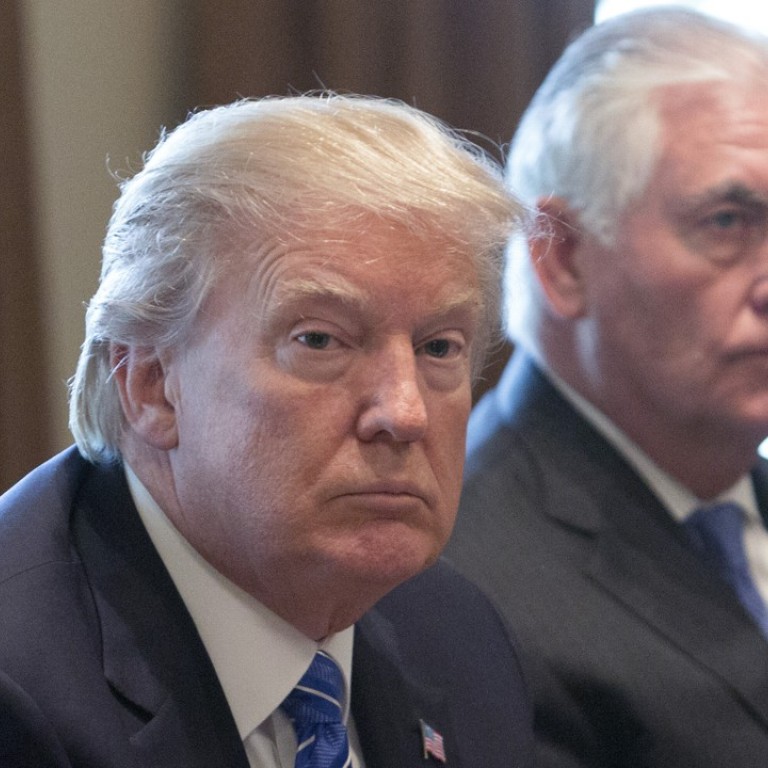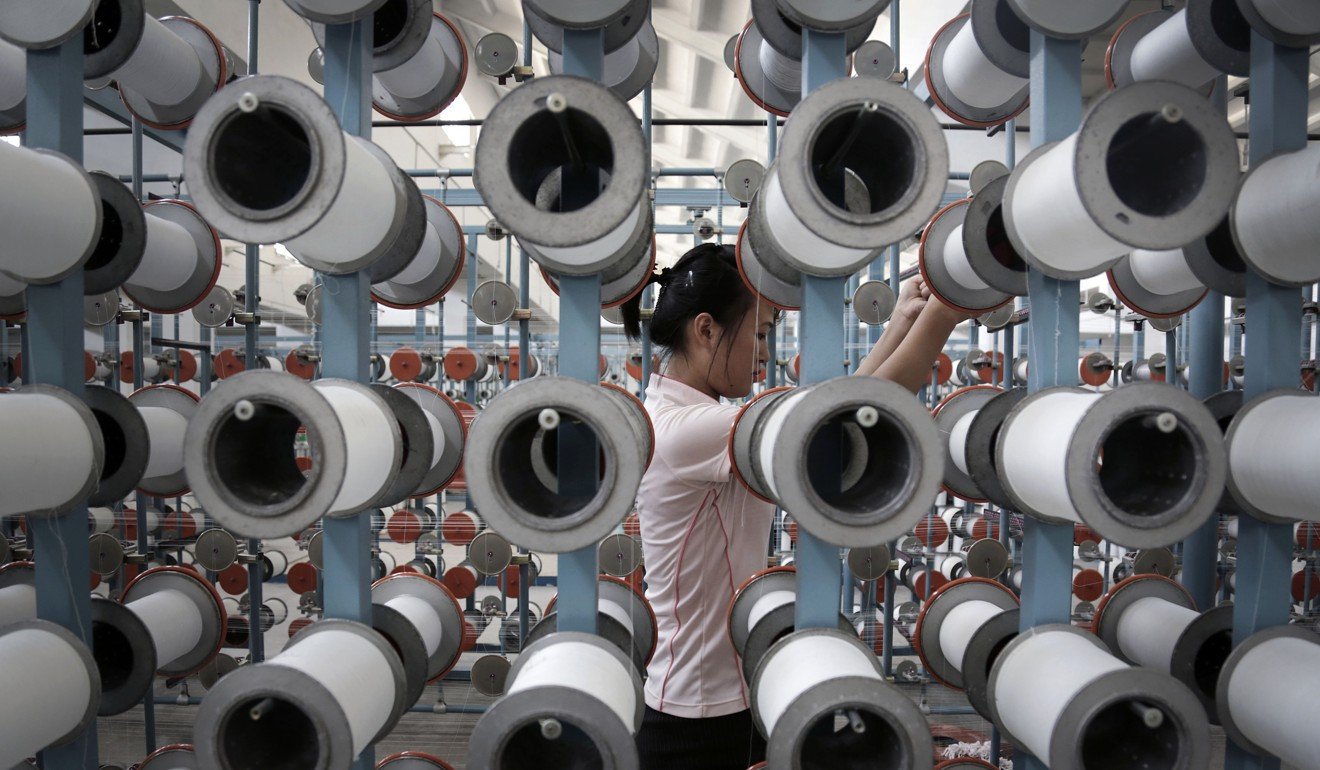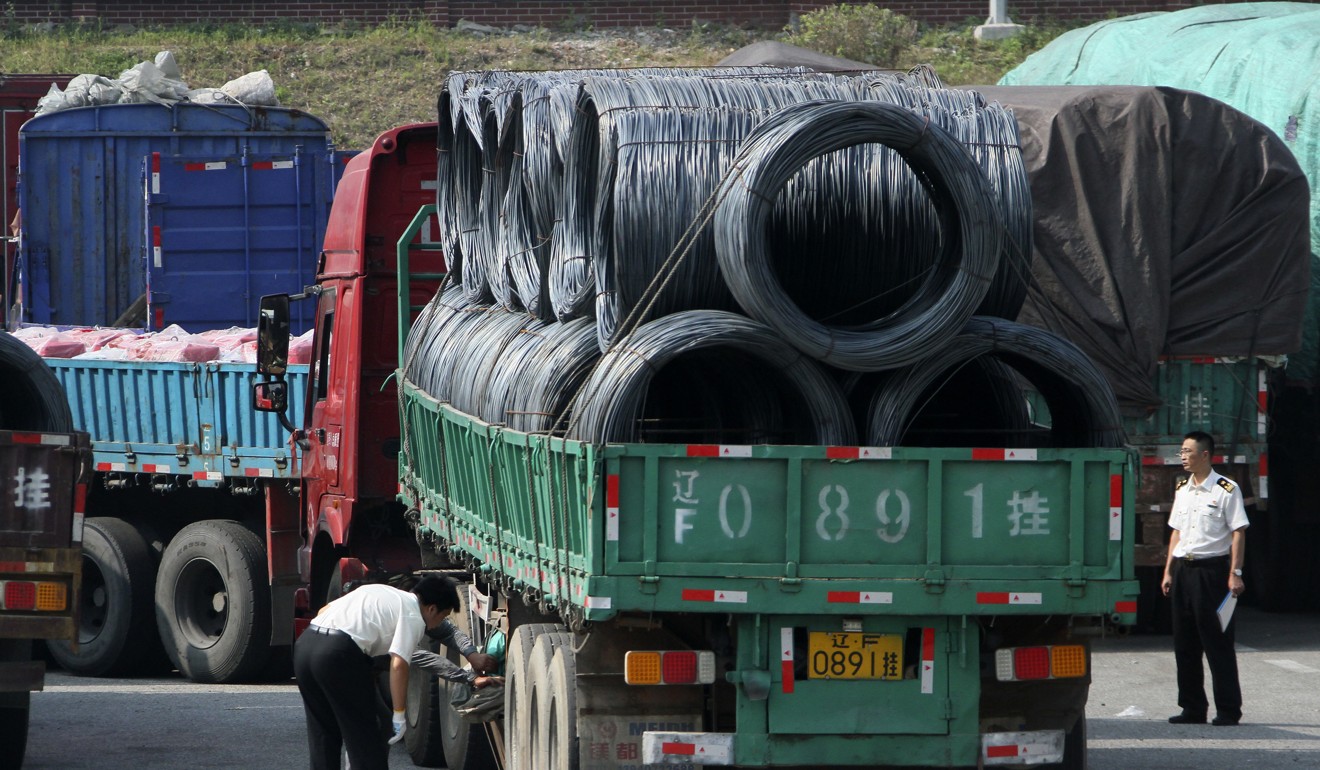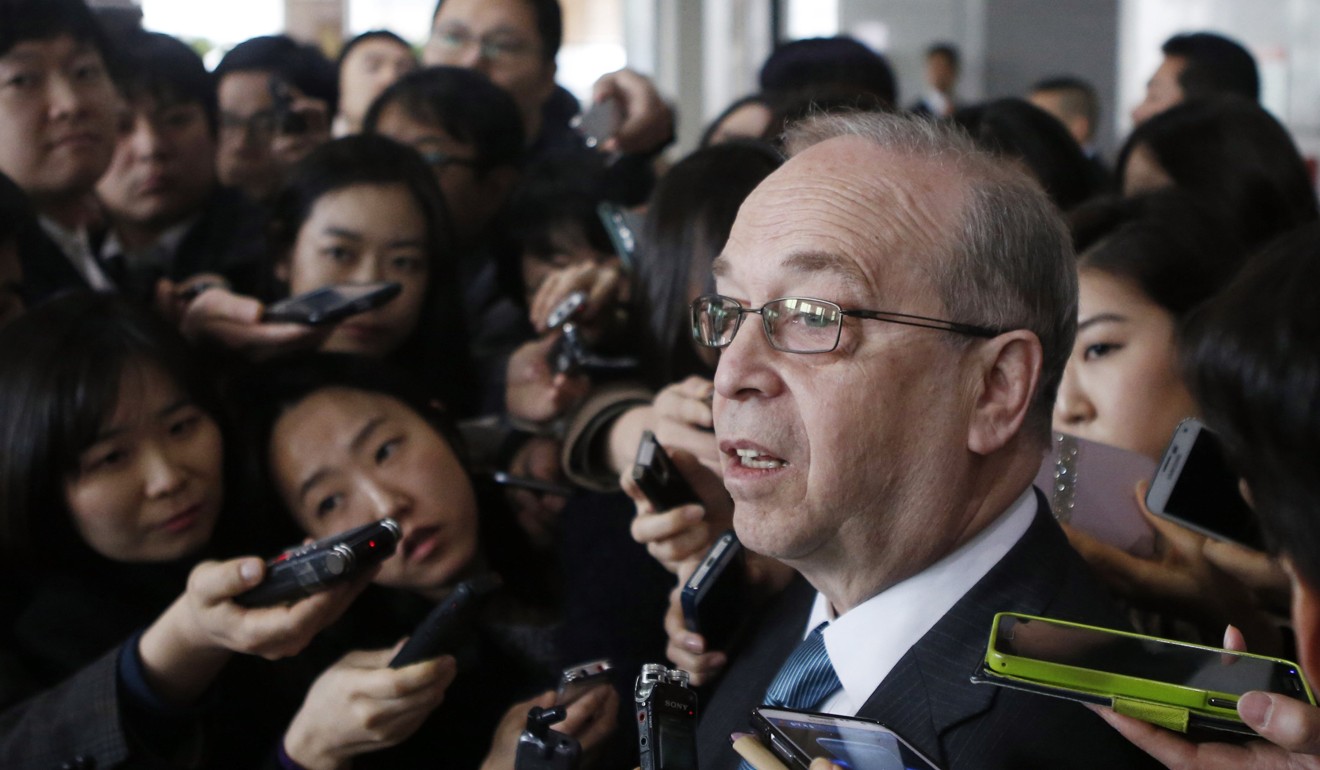
Trump calls latest UN sanctions on North Korea ‘not a big deal’, contradicting own officials
Analysts said ban on textile exports was a significant step in curtailing Pyongyang’s intake of hard currency used to fund its nuclear programme
US President Donald Trump downplayed a UN Security Council resolution passed unanimously this week against North Korea, calling the move “not a big deal”.
Trump’s take on the new sanctions, which curtail North Korea’s fuel and textile trade with other countries, ran counter to the way other current and former officials, including those in Trump’s administration, have characterised the move.
“We had a vote yesterday on sanctions. We think it’s just another very small step – not a big deal,” Trump said in a meeting with Malaysian Prime Minister Najib Abdul Razak. “Those sanctions are nothing compared to what ultimately will have to happen.”
Further underscoring Trump’s hard-line tone, Treasury Secretary Steven Mnuchin hinted at the possibility of more secondary sanctions aimed at China to bring Pyongyang’s nuclear weapons programme to a halt.
Although the final version of the Security Council resolution was a compromise, analysts noted that the total ban on North Korea’s textile exports represented a significant measure in curtailing Pyongyang’s intake of hard currency.
That measure would cut North Korea’s exports by about US$1.3 billion annually, according to US Ambassador to the UN Nikki Haley. The resolution will also phase out Pyongyang’s ability to accept remittances from labourers the government sends overseas.
Haley, addressing her Security Council counterparts after the vote, called resolution 2375 “the strongest measures ever imposed on North Korea. They give us a much better chance to halt the regime’s ability to fuel and finance its nuclear and missile programmes.”

A former US State Department official appointed by Trump’s predecessor Barack Obama also praised the new UN sanctions.
“UNSC Resolution 2325 is a meaningful ratcheting up of international sanctions that will strip away both money and resources used by North Korea in furtherance of its nuclear and missile programmes,” Daniel Russel, former assistant secretary for East Asian and Pacific affairs, told the South China Morning Post.
“The prohibition of all new contracts for labourers from [North Korea] is particularly significant, as is the ban on textiles – perhaps currently North Korea’s biggest moneymaker.”
Clothing overtook coal to become the main North Korean export to China, the country’s main trading partner and traditional ally, after earlier Security Council sanctions halted the country’s coal exports.
Of the US$385.2 million of goods China imported from North Korea in the second quarter, 38 per cent, or US$147.5 million, consisted of garments, according to China Customs data.

North Korea sent 2.7 million tonnes of coal valued at US$220.6 million to China in the first three months of the year, accounting for 43 per cent of exports to its neighbour. That total shrank to zero in the next quarter, according to the data.
Mnuchin’s threat of additional secondary sanctions recognises China’s role in controlling North Korea’s overall trade.
“If China doesn’t follow these sanctions, we will put additional sanction on them and prevent them from accessing the US and international dollar system, and that’s quite meaningful,” Mnuchin said in a CNBC interview soon before Trump met with Malaysia’s Razak.
In its most recent “implementation report” submitted to the UN, China’s delegation detailed, among other measures meant to bring the country into compliance with sanctions against North Korea, action it took to halt coal imports from its neighbour.

“On 18 February 2017 the Ministry of Commerce and the General Administration of Customs announced that the import of coal from [North Korea] would be suspended from 19 February 2017 to 31 December 2017,” the report said.
All UN member states must file implementation reports on what measures they take to ensure compliance with Security Council resolutions.
On August 23, the US announced a set of secondary sanctions against 16 Chinese and Russian entities as part of its efforts to starve North Korea’s military of the cash it needs to develop nuclear weapons.
In that move, the US accused three Chinese companies of importing about US$500 million worth of North Korean coal: Dandong Zhicheng Metallic Materials Company, JinHou International Holding Company, and Dandong Tianfu Trade Company.
Other companies caught up in the secondary sanctions include Dandong Rich Earth Trading Company, which the US accused of buying vanadium ore from Korea Kumsan Trading Corporation, a company already sanctioned by the United Nations Security Council

